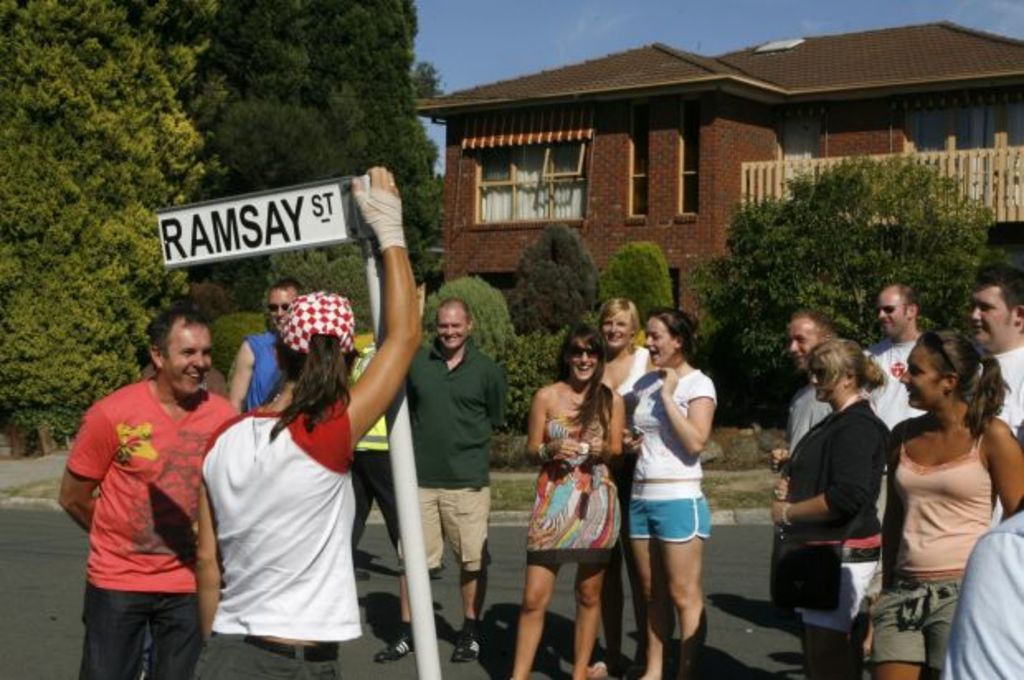Why don't we want to know our neighbours?

When was the last time you borrowed a cup of sugar from your neighbour, or just dropped in for a bit of idle chit-chat?
As we get busier and more globally connected, at least electronically, it seems many of us feel less and less of a need to talk to our neighbours. That’s if we even get as far as introducing ourselves.
An online survey of 200 people conducted early this year by Relationships Australia found that 65 per cent of respondents never, rarely or only occasionally chatted to their neighbours.
So why are some of so reticent to shoot the breeze with those living closest to us?
Andrew Heslop was inspired to create Neighbour Day in 2003, after an elderly woman in Melbourne was found in her home after being dead for two years.
The annual day, now run by Relationships Australia, encourages communities to get to know each other – and to look out for their most vulnerable citizens.
Heslop says neighbours don’t necessarily have to be best friends. “It’s just about creating awareness and giving people a wake-up call.”
However, he’s not convinced that neighbourliness is going out of fashion. “I don’t think we’re not friendly with our neighbours, but I think we can always be reminded about how important neighbours are.”
Community psychologist Heather Gridley, who is also a lecturer at Victoria University, says she hasn’t seen direct evidence that people now talk to their neighbours less.
“But intuitively it’s probably the case and maybe that’s because we’re spending more time on our screens and having other forms of interaction that don’t necessarily require you to be physically close to somebody,” says Gridley.
“You can’t always choose them, and you don’t always like them”, she says, but getting to know your neighbours can break down feelings of mistrust, and enable neighbourhood problems to be sorted out far more easily.
“Rather than railing against it inside your own house, a lot of neighbourhood problems can be addressed by making those connections when you’re not under stress.”
Of course, she says, tight-knit neighbourhoods can sometimes be too cloying, such as in the case of some small country towns.
“Even if we don’t necessarily need our neighbours in the same way we did once, it’s still a valuable thing to work on,” she says. “It’s a bit like we have to work on getting physical exercise, where once it was built into our day.”
Andrew Leigh, the federal member for Fenner, was so concerned by the collapse in community life in Australia, that he wrote a book about it, Disconnected in 2010.
In researching the book, he found that Australians had become less likely to join community organisations such as Rotary, Lions, and Apex – and less likely to know their neighbours.
“The share of us who have plenty of friends and know lots of neighbours has fallen over time,” he says.
“Partly it’s the rise of impersonal technology. You look at what that crowds out and it seems to be displacing time that used to be spent with friends and family.”
Of course the Australia of today is very different to, say, the 1950s, when most women didn’t work, and had time to become heavily involved in community groups.
While society has changed markedly, Leigh is one of many who believe that better relationships with our neighbours – without necessarily living in each other’s pockets – still make us feel more connected.
“I think that one of the things that makes life worth living is other people,” he says.
We recommend
We thought you might like
States
Capital Cities
Capital Cities - Rentals
Popular Areas
Allhomes
More






